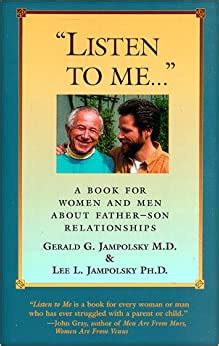A Quote by Brian Greene
Science is very good at answering the 'how' questions. 'How did the universe evolve to the form that we see?' But it is woefully inadequate in addressing the 'why' questions. 'Why is there a universe at all?' These are the meaning questions, which many people think religion is particularly good at dealing with.
Related Quotes
The great philosophers of the 17th and 18th centuries did not think that epistemological questions floated free of questions about how the mind works. Those philosophers took a stand on all sorts of questions which nowadays we would classify as questions of psychology, and their views about psychological questions shaped their views about epistemology, as well they should have.
I won't call my work entertainment. It's exploring. It's asking questions of people, constantly. 'How much do you feel? How much do you know? Are you aware of this? Can you cope with this?' A good movie will ask you questions you don't already know the answers to. Why would I want to make a film about something I already understand?
The cool thing about Watchmen is it has this really complicated question that it asks, which is: who polices the police or who governs the government? Who does God pray to? Those are pretty deep questions but also pretty fun questions. Kind of exciting. It tries to subvert the superhero genre by giving you these big questions, moral questions. Why do you think you're on a fun ride? Suddenly you're like how am I supposed to feel about that?
Neo-Darwinian language and conceptual structure itself ensures scientific failure: Major questions posed by zoologists cannot be answered from inside the neo-Darwinian straitjacket. Such questions include, for example, 'How do new structures arise in evolution?' 'Why, given so much environmental change, is stasis so prevalent in evolution as seen in the fossil record?' 'How did one group of organisms or set of macromolecules evolve from another?' The importance of these questions is not at issue; it is just that neo-Darwinians, restricted by their resuppositions, cannot answer them.
Curiosity is a key building block. The more curious you are, the more creativity you will unleash. A great way to do that is to ask the three "magic questions" again and again... those questions are simply, "Why", "What if?", and "Why not?". Asking these questions constantly focused you on the possibilities and away from how things are at the moment.
Philosophy is to be studied, not for the sake of any definite answers to its questions, since no definite answers can, as a rule, be known to be true, but rather for the sake of the questions themselves; because these questions enlarge our conception of what is possible, enrich our intellectual imagination and diminish the dogmatic assurance which closes the mind against speculation; but above all because, through the greatness of the universe which philosophy contemplates, the mind is also rendered great, and becomes capable of that union with the universe which constitutes its highest good.




































